I haven’t been learning French very long. But since I’ve wanted to learn, I’ve had apps that I turn to for help. Whether translating, conjugating, looking up in a dictionary, or typing, you’re going to want the extra help.
Modern times call for modern solutions. There are so many tools to augment your French learning, here’s a quick round up of the ones I use on a daily basis.
Take the quiz, join the conversation.
Did you find this one challenging or easy? Did you hear something diffferent? What surprised you? What levels did you complete? Comment below and share what’s opening up for you with this quiz.
Modern times, modern solutions.
I wrote a few paragraphs in French in Google docs the other day. I was amazed at how much Google helped. It almost felt like cheating.
The spellchecker suggested the correct accent marks and recommended more accurate expressions and made my work grammatically correct.
Wow, it almost looks like I know French, I thought to myself.
We have so many tools at our fingertips, not just for learning French, but for really using it. And for mastering it. It’s important to use all the tools you can.
Here’s a quick round up of some of my favorite tools:
Linguee for my dictionary
Check it out here: https://www.linguee.com/
I love the Linguee dictionary.
They have accurate definitions and example sentences. The example sentences are my favorite. You can scroll through dozens if not hundreds of real use expressions. This can help cement your understanding and also let you make sure you’re using words the right way.
I have their app, too. I’m always checking words I hear or guess the meaning of to confirm. They have loads of dictionaries in other languages and language pairs, but I simply use the French-English pair now.
Again, the examples alone are a great reason to use this dictionary. Truly powerful stuff.
Deepl for translations
Check it out here: https://www.deepl.com/en/
In earlier posts on this site I often used Google Translate. In fact, it’s my go to for any quick and dirty translation needs. This is one because I use a google phone, it’s close at hand. And two, because my wife and I are often traveling. Those are just excuses.
I discovered Deepl recently and was pleasantly surprised by what seemed like a more human translation. For me, the translations seem smoother and more like a person would speak. That’s my goal when I’m getting a translation. I’ve read it’s because they built their translations from Linguee’s example sentences, so maybe that explains it!
Actually, I just went to Linguee’s site on a computer (not on my phone) and realized they are a single company – Deepl and Linguee. So there you have it. I have my allegiances!
Of course, I hope to slowly move away from translations altogether. That will come down to understanding more basic grammar and improving my vocabulary. That comes with time. For now, I still use this for translating snippets for their context.
VTFC for conjugations
Check it out here: https://www.gymglish.com/en/conjugation/french
There are a lot of tools out there for conjugations. I’m not going to lie, I was drawn to try this one for their punny name. “VaTeFaireConjuguer” which (I understand) is a pun for something a bit NSFW and inappropriate. I’ll stop there, without going down a slang rabbit hole.
A conjugation tool is extremely helpful. I love it for confirming my guesses on conjugations. They also give you everything – present, past, future, imperatives and all the other tenses in between.
Le Dictionnaire de la Zone for slang definitions
Check it out here: https://www.dictionnairedelazone.fr
I had to turn to this tool when I was diving into Aya’s song 40%. French, despite the French Academy’s efforts, is a modern language. And that means it’s constantly changing, growing, and morphing. I’m a bystander, someone trying to understand. I’m not hoping for it to change, nor am I wishing that it wouldn’t change.
As I want to understand, I need tools to understand the new parts of the langauge, the fringes. The slang. I love this because they seem to dive into rap and other minority aspects of the langauge to form their dictionary entries. This gives you a new perspective on the language.
Now, as a learner, I’m not using this as a tool to figure out What to say. I use it only as a tool to understand what was said. There’s a big difference, and I hope you appreciate that.
Keep in mind DZ is French-French. So you may need to dig a bit more after getting the definition to make sure you understand. But what better way to understand a new cultural expression than by learning it in that cultural context? That last sentence was deeper than I intended it to be.
Improving with French numbers
There are no shortage of memes and jokes about French counting. While there is a learning curve, it’s not impossible. Remember, millions of French native speakers think their numbers are perfectly logical and rational! All I mean is, there is hope for you.
Recently a member of the site shared this website with me: LangPractice.com for numbers.
This tool plays a person saying a number and you have to type what you hear. Truly a great tool for quizzing yourself and improving your readiness for the farmer’s markets in France. I highly recommend checking it out. Shout out to Cynthia for sharing it. Thank you!
Woodpecker Learning to watch Youtube/Netflix
“Watch French shows” they said. For me, that’s easier said than done. The words are rapid fire, scenes are quick, jokes are quicker. And I’m missing 97.6% of it. I use this app to help understand more on TV.
Simple to use, touch any word in the subtitles and you’ll get the translation into English. It’s great to confidently dive into Dix Pour Cent and Parisian Agency (two of my personal faves in French). When you open the app, all the videos come from Youtube. If you have an iPad you can pay to upgrade to watch Netflix (requires your own Netflix account).
This gives you a quick way to discover slang and more nuanced expressions, which are so, so common in series and movies. You still have to put things together to understand the meaning. And I prefer that,
So there it is.
A quick look at what tools I’m using daily for French learning. What did I miss? What essential tools for French speaking/learning/understanding do you use on a daily basis? Share them below.

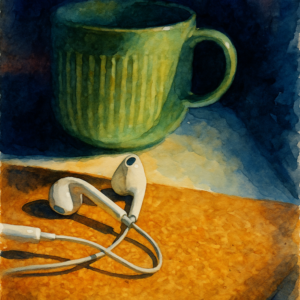
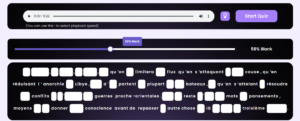
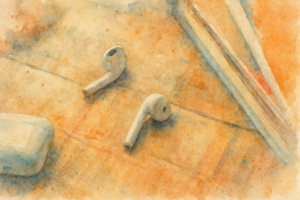
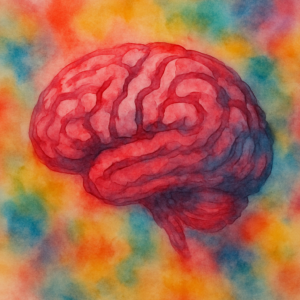
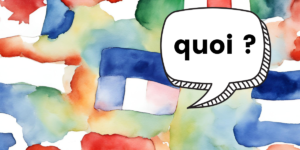




nothing special
Thanks for the post
Love these site recommendations and I’m so glad I also found your site with daily quizzes! Merci beaucoup!!